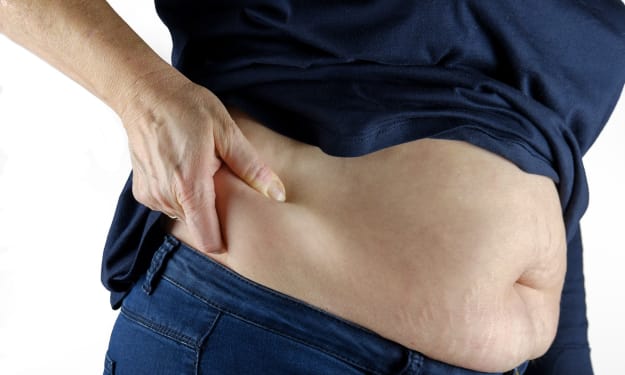
Obesity Medicine Advice doctors for weight loss
According to physicians who practice bariatric care, obesity is prevalent in America (specialists who help you lose weight). Numerous major diseases, including heart disease, diabetes, certain malignancies, and Alzheimer's disease, are associated with being overweight or obese. But as we are all aware, losing weight and keeping it off may be quite difficult. Diet, exercise, lifestyle modifications, and medication are among the methods that physicians who specialize in obesity medicine employ to help their patients become and remain healthy. (They sometimes recommend individuals for bariatric surgery; they do not do it.) We consulted three of the greatest experts in bariatric medicine to get their best advise on how to combat obesity.
1. Various individuals doing out with kettlebells in the garage gym Exercise doesn't aid with weight loss.
According to the great majority of clients who see me, Angela Fitch, MD, associate director of the Massachusetts General Hospital Weight Center in Boston, the main cause of their weight problems is a lack of exercise. However, according to studies, "Exercise does not promote a lot of weight reduction," she claims. You could even eat extra since you'll be so hungry afterwards. Exercise may prevent people from losing weight, according to Wendy Scinta, MD, president of the Obesity Medicine Association and a family doctor in upstate New York.
2. You can sustain weight reduction by exercising.

Getting active may not help you lose weight, but it may help you keep it off, according to Dr. Fitch. According to current evidence, maintaining weight reduction is the greatest benefit of exercise. Dr. Fitch notes that beyond the age of 30 "If we aren't physically active, we begin to lose muscle mass every day. The amount of calories you burn when at rest is determined by your muscle mass." Regular strength training, which may be accomplished with weights or "body strength" exercises like lunges, squats, planks, and push-ups, is encouraged by the expert.
3. "Drugs for weight reduction may have a significant impact."

The most recent research, according to Dr. Fitch, "shows that medicine is incredibly useful to get folks where they need to be." "With medicine, they will have 4 to 6 times as much success as they would without it." According to Dr. Fitch, there are several medications available today that may help patients combat cravings and reduce appetite, but many of them must be used over an extended period of time in order for the weight to remain off. For those with an obese BMI of 30, or a BMI of 27 if they also have at least two obesity-related diseases, she advises them (like diabetes).
4. "The key to therapy is understanding why you overeat."
According to Craig Primack, MD, an expert in obesity medicine in Arizona, "each individual is going to have a distinct reason they are overweight." According to him, emotional factors like loneliness, boredom, tension, despair, or weariness often play a role in overeating. According to him, understanding a patient's overeating triggers enables physicians to better design obesity therapy, which may include medication, dietary and behavioral counseling, and behavioral or lifestyle adjustments. Dr. Fitch draws a parallel between obesity and cancer, saying, "Obesity is fairly comparable. We have many sorts of cancer, and they're not all treated the same."
5. Diets don't suit everyone the same way,

According to Dr. Primack, "Your buddy may have followed this one specific diet and shed some pounds, but the same diet or plan may not work for you." He claims that one explanation is because more than 200 distinct genes, including 20 important ones, influence your probability of being overweight, making it unlikely that your obesity is caused by the same genes as someone else's. This implies that what works for your buddy may not function for you. According to Dr. Primack, genetic testing will soon be available so that patients may discover a specific therapy for their obesity.
6. "Getting adequate sleep aids with weight loss."
Sleep is crucial to weight reduction, according to Dr. Primack. Sleep hormones malfunction when you don't get enough rest: ghrelin, which makes you feel hungry, rises, while leptin, which alerts you to fullness, declines. Additionally, your metabolism slows. Even if you follow all the right steps to lose weight, such as eating and exercising, he claims, it won't help you as much if you aren't getting enough sleep. In addition to melatonin (1–2 milligrams given 7 hours before bed), Dr. Primack advises switching off devices at least an hour before going to bed.
Lean meat, fish, fruit, nuts, vegetables, and grains are among the selection of nutritious foods.
7. Think about fasting and high-protein, low-carb diets.

Lower carbohydrates are the main tenet of today's diets, according to Dr. Primack. I like lesser carbs and more protein rather than extremely low carbohydrate diets. Dr. Scinta claims that she attempts to accommodate patients' dietary preferences and sometimes suggests ketogenic or paleo diets. She responds, "Those are my favorites." According to Dr. Scinta, intermittent fasting is also "extremely beneficial for you" and may be a particularly effective strategy for those who miss breakfast. When you fast intermittently, you only consume liquids during the other 16 hours of the day, such as water, black coffee (without cream), tea, and other beverages.
8. Low-calorie meal replacement plans help people lose weight quickly.

Dr. Scinta claims that she sometimes prescribes whole meal replacement regimens to patients who are more than 50 pounds overweight (usually only 800 to 1,000 calories per day in the form of shakes, bars and soups). The products she uses, according to her, "are really precisely made so you can get all the nutrients in," and she claims they quickly reduce weight, which encourages users to keep using them. Dr. Fitch advises choosing shakes or bars with "at least 15 grams of protein and fewer than 10 grams of carbohydrates" if one wants to sometimes purchase a replacement program.
Various sugars and artificial sweeteners in a restaurant container.
9. Synthetic sweeteners are OK.
While some studies suggest artificial sweeteners might contribute to weight gain, Dr. Scinta claims she hasn't seen this in her patients and that the evidence is conflicting. "I believe it can be a very effective tool for weight reduction, particularly if you're doing something like the ketogenic diet where folks simply want to have a little bit of something sweet in there," she adds. After a time, fat and protein might become a bit dull, but if you can add a little Stevia to your yogurt, it will taste more appealing.
Unseen lady fills glass 10 with water from bottle. The "20-minute rule" may be used to control cravings.
According to Dr. Primack, cravings only endure for around 20 minutes after which they disappear. We see it as a wave that rises slowly from the time that hunger is first felt until it subsides. He advises setting a timer for 20 minutes after the need strikes. After that, tell yourself you can eat something if you're still hungry. Dr. Fitch also advises exercising when cravings arise, such as going for a stroll. Try drinking water instead. She explains that sometimes people are genuinely thirsty and not hungry, but they are unaware of it.






Comments
There are no comments for this story
Be the first to respond and start the conversation.